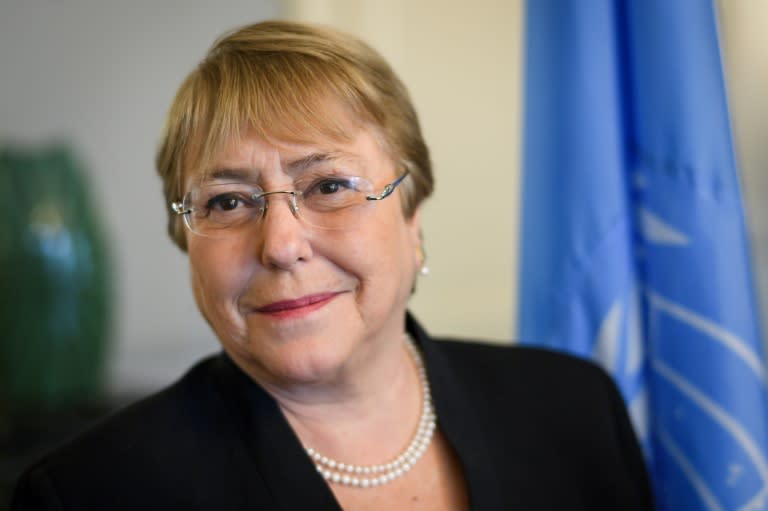New UN rights chief decries abuses of minorities, migrants
The new UN rights chief decried Monday crackdowns on minorities in countries like Myanmar and China and urged Western countries to respect migrant rights, warning that erecting walls only caused chaos and suffering. In her first address, Michelle Bachelet opened the UN Human Rights Council's 39th session stressing her "commitment to bridging the differences between communities and promoting respect, well-being and freedom." Diplomats and activists from around the world gathered in Geneva to hear her maiden speech, seeking clues as to whether she will mimic the abrasive style of predecessor Zeid Ra'ad Al Hussein. Bachelet, a former Chilean president, hailed Zeid but seemed to stake out a softer approach, only briefly mentioning a few concrete rights situations and refraining from full-blown criticism. "I am convinced that this council must strive for consensus," she said. Bachelet did however voice particular concern about the situation in Myanmar, where UN investigators say there is enough evidence to prosecute the country's army chief and five other top military commanders for crimes against humanity and genocide against the Rohingya minority. Some 700,000 Rohingya Muslims fled northern Rakhine state to Bangladesh after Myanmar launched a brutal crackdown on insurgents in August 2017 amid accounts of arson, murder and rape. Myanmar has vehemently denied allegations of ethnic cleansing, insisting it was responding to attacks by Rohingya rebels. Bachelet called on the rights council to create a new "independent international mechanism" tasked with preparing criminal indictments over atrocities committed in Myanmar. She said that if created, the panel would also "complement and support" the International Criminal Court's planned probe of certain aspects of the crisis, insisting on "the imperative of justice for Myanmar." - 'Deeply disturbing' - In the written version of her speech, Bachelet also took issue with China's treatment of its Uighur Muslim minority. She pointed to a review of China by independent UN rights experts last month which "brought to light deeply disturbing allegations of large-scale arbitrary detentions of Uighurs and other Muslim communities in so-called re-education camps across Xinjiang." Pointing to reports that documented patterns of rights violations in other regions as well, Bachelet said: "We would request the government to permit access for the (UN rights) office to all regions of China, and trust we will embark on discussion of the issues." The new High Commissioner for Human Rights voiced dismay at the approach many developed countries have taken to migration, meanwhile. "Erecting walls, deliberately projecting fear and anger on migrant communities, ... separating and detaining families, and cutting integration programmes: such policies offer no long-term solutions to anyone, only more hostility, misery, suffering and chaos," she said. "It is in the interest of every state to adopt migration policies that are grounded in reality, not in panic," she insisted. In her oral address, Bachelet did not criticise the migration policies of specific countries, but in her written statement she described the EU's handling of migrants crossing the Mediterranean as "disturbing". - 'Devastating consequences' - She highlighted Italy's decision to repeatedly close its ports to arriving migrants, insisting such "political posturing" was having "devastating consequences for many already vulnerable people." She also slammed harsh tactics in Hungary and "shocking reports" that "food has been withheld from migrants held in transit zones on the Hungarian-Serbian border." The three-week rights council session that opened Monday marks the first full session since the United States withdrew in June, accusing the body of "hypocrisy" and anti-Israel bias. Bachelet did not mention the US absence in her address, but in her written speech she did criticise the country for its harsh anti-migration policies. While the country has "halted the unconscionable practice of separating immigrant children from their families," she pointed out that "over 500 migrant children taken away from their parents ... have still not been returned to their families." Bachelet also voiced concern at the announcement from Washington last week that it would no longer limit the detention of migrant children to 20 days.




